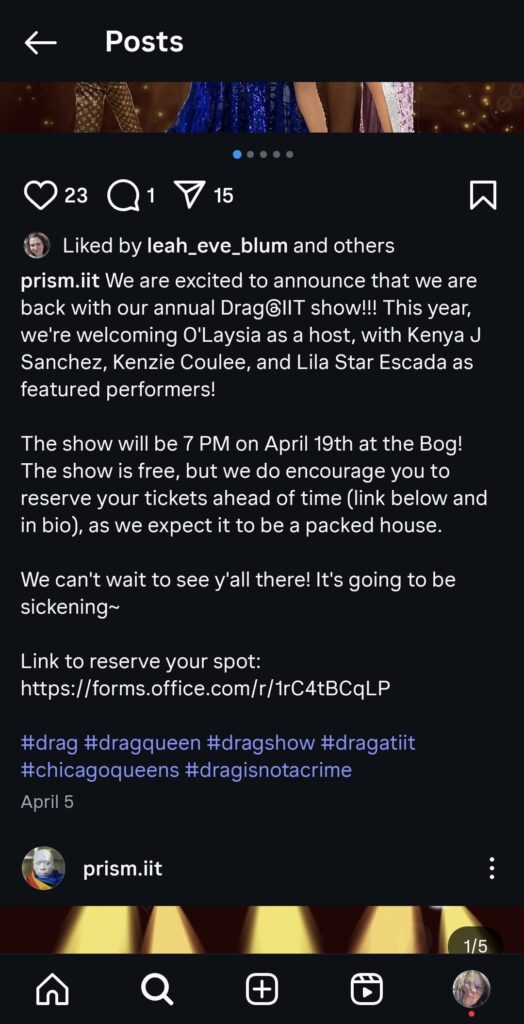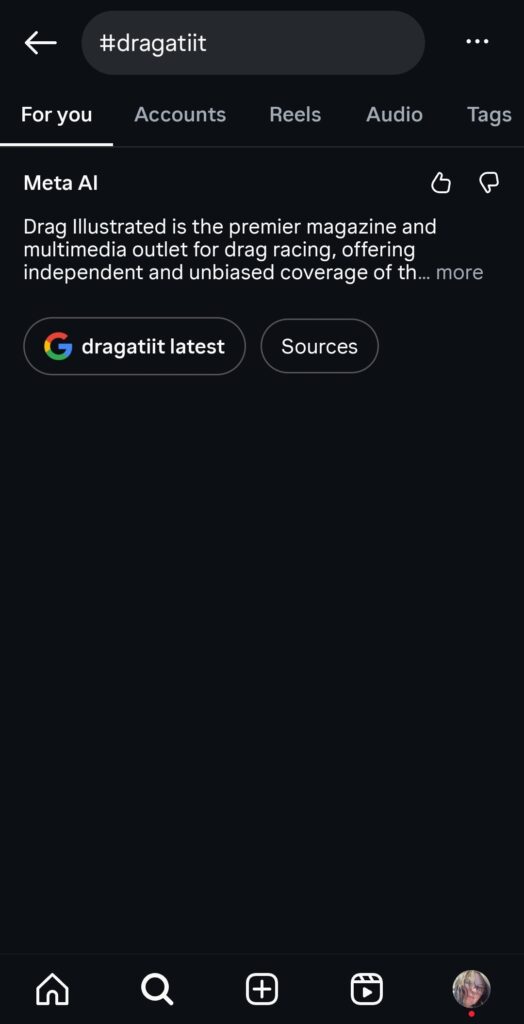In September 2024, Meta (the company that owns Facebook, Instagram, and Threads) began adding queer hashtags – such as #gay, #lesbian, #bisexual, #trans, #queer, and #nonbinary – to the list of content considered “sensitive” due to being “sexually suggestive,” limiting its reach and, in some cases, shadow-banning users who regularly posted queer content. This included content that would not have been considered “sexually suggestive” if posted by cisgender, heterosexual users. This filter was automatically turned on for minors – meaning any teen who searched these hashtags would receive a blank page – but was available for everyone. Meta apologized for this and said they reversed this on January 6, 2025 (“Meta caught censoring LGBTQ+ content and says it was ‘mistakenly restricted,'” Mira Lazine, LGBTQ Nation).
However, the very next day, Meta announced sweeping new rule changes that allowed much broader discrimination to no longer be considered “hate speech.” This ranged from allowing for hateful content to be posted towards both queer individuals and the large community, including in ways prohibited for other minorities. For instance, calls for women or people of color to be economically excluded, such as banned from certain professions, are not allowed. Similar calls for queer economic exclusions are. The announcement also included language such as “transgenderism” that are in and of themselves often considered discriminatory as a definitional term – not even an example of what may or may not be allowed. It also effectively undid their previous day’s reversal of the sensitive content filters, and arguably expanded it, as it now allowed queer users to be censored as “political content” (“Meta’s New Policies: How They Endanger LGBTQ+ Communities and Our Tips for Staying Safe Online,” Belle Torek, Human Rights Campaign.)
Speaking as someone who has an Instagram account, I still have the option to limit suggested content based on being “sexually suggestive” or “political”, which would include at least some forms of queer content. For instance, I tried turning the “sensitive content” filter to its strongest possible setting (allowing for the least amount of content), and then searched “#dragqueen”. Obviously results will vary, but for me, out of the top 100 posts, I’d say roughly 80% were stills or clips from RuPaul’s Drag Race (RPDR). Most of the remaining ones were stills or clips from queens who have been on RPDR, but weren’t from the show itself. And two were from content creator and drag queen @bitethesepickles. When I turned the filter to no restriction, I still initially was hit by RPDR and alum content, but it also included a much wider range of queens, including many local to Chicago.
Okay, so why am I talking about this? In addition to writing for TechNews, I’m involved in a bunch of different on-campus organizations. What’s relevant to this article is that I’m also the president of Prism, the club for LGBTQ+ students and allies on campus. I’m the one who’s spearheaded coordinating the drag shows that we’ve held on campus. And when I was checking our reach related to the drag show and another post earlier in the semester, I noticed that our interactions (likes, etc.) were fairly consistent, but there was a sharp drop-off in views. In particular, there was a sharp drop-off in views by an account who was not following us. We regularly post queer content and have posted political content before, so I began to suspect something was up and did a little experiment.
“dragatiit” was a hashtag we created for advertising the event (named Drag@IIT). I temporarily unfollowed the Prism account, and searched this hashtag on the strictest content filter. I’ve included a screenshot of what I saw, as well as one of the post announcement to prove that this is the right hashtag. I’m not certain if it was #dragatiit specifically, one of the other hashtags on the post, or the Prism account as a whole, but it didn’t show up when I searched it. Our content was artificially restricted by Meta.
These policies are real, prominent, and hurt those around you. And I can prove that it has hurt at least one club on our campus in particular. We need to speak out against these changes, and to increase awareness of what is happening. Silencing people is always how it starts but never how it ends.


